Date: 23-25 September 2025
Location: Amersfoort and Leiden, The Netherlands
Organisation: Colonial Collections Consortium
Language: English
Many museums and institutions across Europe are custodians of objects and collections originating from colonial contexts. As professionals managing these collections, and recognizing our shared responsibility in addressing historical injustices, how can we best fulfill this role? What can we learn from each other’s experiences?
The Consortium Colonial Collections in the Netherlands warmly invites museum and collection professionals across Europe to participate in The European Working Conference on Collections from Colonial Contexts.
Want to know more about this conference? Click the button below for more information.
Restitution in Practice: an Artistic Approach to the Return of Ancestral ObjectsDate: Tuesday 24 June 2025
Time: 4.00 – 6.00 PM (CEST)
Location: Kartini room at the University of Amsterdam
Address: Bushuis, Kloveniersburgwal 48, 1012 CX
Organisation: University of Amsterdam
Language: English, Spanish
The CHEco (Critical Heritage Ecologies) research initiative invites you to ‘Restitution in Practice: an Artistic Approach to the Return of Ancestral Objects’. Two members of the artistic collective Minga Prácticas Decoloniales will share their experiences and perspectives on the return of cultural objects held in European museums to their communities of origin in South America, with a particular focus on Colombia.
Focusing on their encounter with gold artifacts from the so-called Quimbaya Treasure—currently housed at the Museo de América in Madrid and the Humboldt Forum in Berlin—the artists explore how artistic practice can become a tool for reparation and reconnection. Drawing on the ritual and spiritual dimensions of Indigenous knowledge, they reflect on how art can help reweave the broken ties between objects, memory, and territory.
Speakers: Estefanía García Pineda and Edinson Quiñones
Moderator: María Suárez Caicedo
Registration
Please register by sending an email to m.p.suarezcaicedo@uva.nl

Date: Thursday 26 June 2025
Time: 01.30 – 4.30 PM (CEST)
Location: Wereldmuseum Leiden
Address: Steenstraat 1 2312 BS Leiden
Organisation: Universiteit Leiden, Vrije Universiteit Amsterdam
Language: English
Leiden University and Vrije Universiteit Amsterdam are jointly organizing a networking event as part of the joint sector theme ‘Cultural heritage and identity: collecting, management and transfer’. You are cordially invited to attend.
The restitution of objects and collections and the decolonization of the institutions to which these collections belong are high on the agenda. Through co-creation and new, digital techniques, collections managers want to open up collections in a more equitable and inclusive way. These trends require us to reflect not only on our practice as researchers, but also on our conceptual understanding of the collection, management and transfer of cultural heritage.
What is the place of cultural heritage collections in our research? How is the digitization of these collections changing our research practice? And to what extent do archival and research infrastructures – digital and physical – influence our approach to heritage collections?
On 26 June we would like to discuss these questions and share experiences with you, together with partners from the heritage sector. The programme will start with four presentations followed by a panel discussion and debate with the audience.
- Mariana de Campos Françozo (Universiteit Leiden) – Indigenous South America in Museum Collections: Evolving Research Perspectives
- Quinsy Gario (Vrije Universiteit) – In Plain Sight: Dutch Afro-Caribbean art practices and Dutch colonial collections
- Alicia Schrikker (Universiteit Leiden) – Colonial Collections and the Repatriation of Objects
- Lorella Viola (Vrije Universiteit) – Polyvocal Interpretations of Contested Colonial Heritage
Date: Wednesday July 9 2025
Time: 2:00 – 6:00 PM (CEST)
Location: AGORA Room 2: Main Building HG-3CO2
Address: VU University Amsterdam, De Boelelaan 1105, 1081 HV Amsterdam
Organisation: University of Colombo, Sri Lanka, The Netherlands Sri Lanka Foundation, The Netherlands and the Vrije Universiteit (Free University) Amsterdam
Language: English
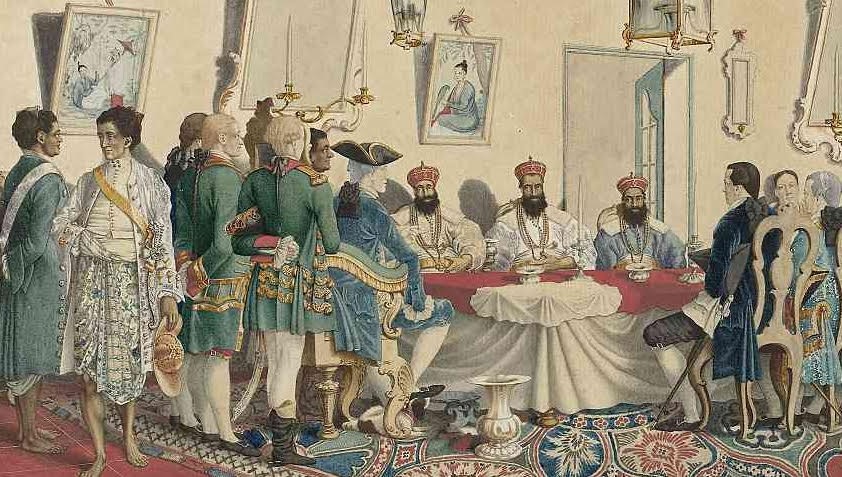
The taking of cultural objects from Sri Lanka during the Dutch colonial encounter in this country has raised fundamental questions of justice and legality. Given the continuous evolution of the notion of justice, an important issue is the question of who will decide and on what basis the decision will be made, on which injustices emerged in the historical entanglement of the United Provinces and then Ceylon in general and specifically in relation to cultural artefacts. When considering the causes for such historical injustice it is asserted that there may be a difference of approach to governance. To address the issues of historical injustice there is a need to broaden and deepen the knowledge of the legal basis of the early colonial encounter.
This NWO funded project attempts to provide insights into addressing questions such as: How to recognise and acknowledge these injustices? If objects or artefacts, now in the Netherlands, are to be returned to Sri Lanka then what exactly is being returned, resitituted, or even restored? What are the (provenance research) methodological and policy making considerations that needs to be addressed? How could shared and collective learning be organised? These are some of the key ideas that will be addressed in the project.
This symposium is to provide a flavour of the NWO funded project topics. The following four themes would be presented to the participants in the anticipation of critical questioning by and constructive feed-back from the participants of the symposium.
Programme Introduction by:
- Naazima Kamardeen, (Prof. Dr.), University of Colombo, Sri Lanka
- Wouter Veraart, (Prof. Dr.) Free University, Amsterdam
- Wayne Modest (Prof. Dr.) Wereldmuseum, Leiden
- Dilip Tambyrajah (Mr) Netherlands-Sri Lanka Foundation, Netherlands
Project content presentations
1. Redressing Historical Injustice:
A Study of the legal entanglements in relation to Colonial Cultural Property in the Netherlands-Sri Lankan Context | By: Dumindu Madushan (Mr) University of Colombo. PhD candidate.
2. Getting the Story Right:
Collaborative Research to Review and Advance the Practice of Provenance Research | By: Darshi Thoradeniya, (Dr.) University of Colombo
3. Preserving for Posterity:
Legality of digitizing Sri Lankan objects in Dutch museum of the colonial period and creating a repository of object records | By: Tavini Nanayakkara (Ms) University of Colombo
4. Building Sustainable Networks for Collaboration:
A Lab for Transdisciplinary Colonial Collection Studies and Practice in Sri Lanka (& international cooperation) | By: Dilip Tambyrajah & Nirmal Dewasiri (Prof. Dr.) University of Colombo
Confirmation participation
Please confirm participation by sending a brief email by 1st July 2025 to Dilip Tambyrajah at: dilip.tambyrajah@wxs.nl
Online Consultations for Scheme Provenance Research Colonial CollectionsDo you work at a Dutch heritage institution, such as a museum, university, archive or library, that manages colonial collections or objects and would you like to map out the provenance history? The Consortium Colonial Collections can support your research project through the Provenance Research Scheme. In May, we will organise three online consultation hours to explain the scheme and the requirements step by step. You can then also ask your questions to the consortium colleagues.
The online consultations will take place in Dutch via MS Teams on:
- Tuesday 20 May 2025, 3pm-4pm
- Wednesday 21 May 2025, 10am-11am
- Thursday 22 May, 3pm-4pm
There are a maximum of 15 spots per consultation hour. Sign up to receive the MS Teams link!
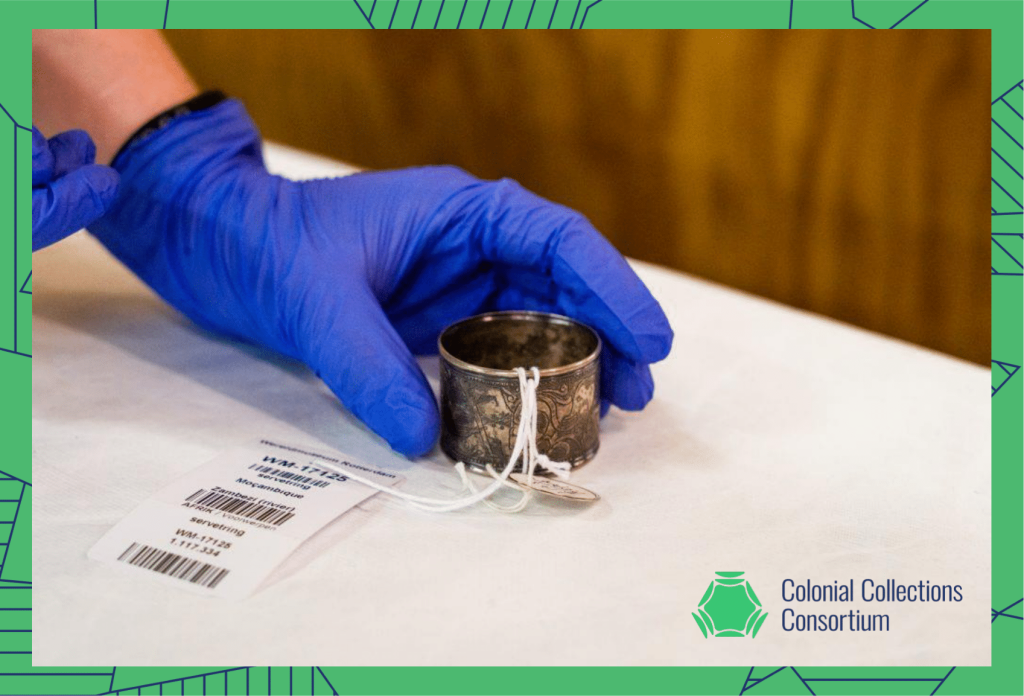
Date: 15 March – 21 September 2025
Location: University Museum Groningen
Address: Oude Kijk in ’t Jatstraat 7a, 9712 EA, Groningen
Organisation: the exhibition is part of the international research project Pressing Matter: Ownership, Value, and the Question of Colonial Heritage in Museums and was curated by researchers from Amsterdam, Groningen, and Leiden.
How did orangutans from Borneo end up on a dissection table in the Netherlands? What happened to the elephants studied by scientists? How did they gain access to human remains from the Netherlands and its colonies? And what impact did their work have on the development of racial science?
The University Museum Groningen presents Entangled Stories: Science and Colonialism in the Collection of Petrus Camper, an exhibition exploring the colonial history of the university’s collection. At its core is the legacy of scientist Petrus Camper (1722–1789), whose collection has been preserved at the University of Groningen for over 200 years.
Camper was a man of contradictions: he opposed slavery, yet he collected human remains from the colonies without consent. For years, Petrus Camper was honored through exhibitions (including at the University Museum) and in the city of Groningen. However, with today’s understanding, critical questions must be asked about how Camper and other scientists obtained human and animal specimens. The exhibition highlights how Camper’s legacy is intertwined with colonial structures and the development of scientific racism. How should museums address this history?
Entangled Stories invites visitors to take a fresh look at the history of science and to reflect on the future of academic heritage.
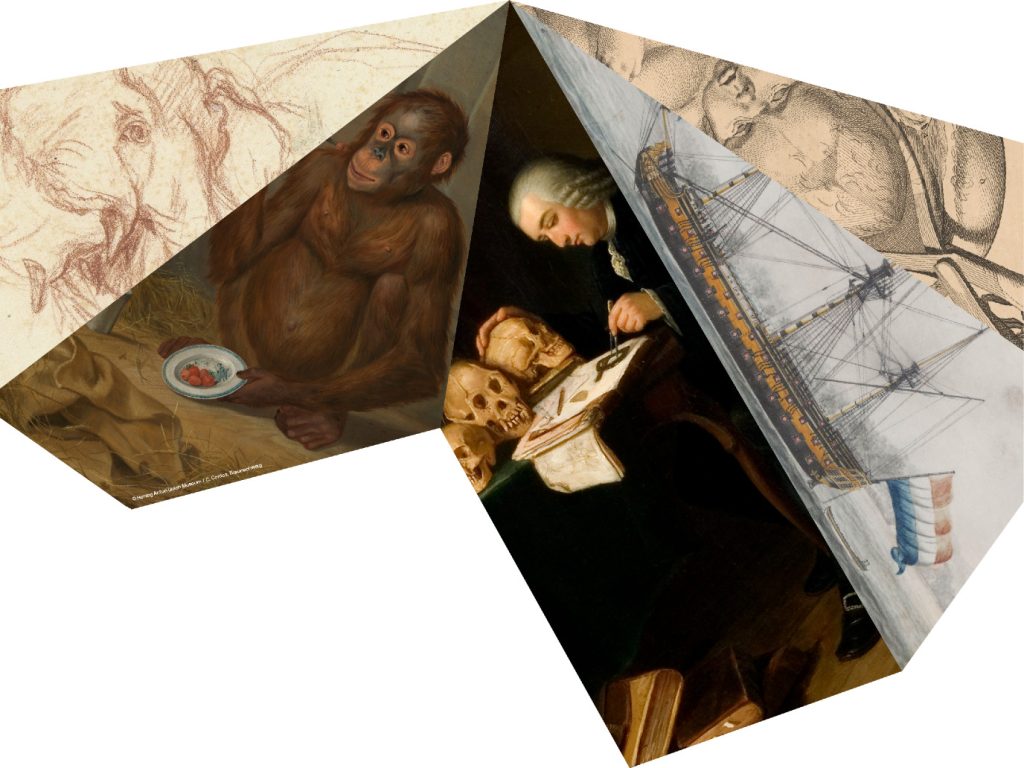
The exhibition, on display from 15 March until 21 September 2025, is part of the international research project Pressing Matter: Ownership, Value, and the Question of Colonial Heritage in Museums and was curated by researchers from Amsterdam, Groningen, and Leiden. For more information about Pressing Matter, please visit www.pressingmatter.nl
Book presentation: Legacies of colonialism in museum collectionsDate: Thursday 15 May 2025
Tim: 3.30 – 5.00 PM (CET)
Location: KITLV, Herta Mohr building, room 1.30
Address: Witte Singel 27A, 2311 BG, Leiden
Organisation: Koninklijk Nederlands Instituut voor Taal-, Land- en Volkenkunde (KITLV) / Royal Netherlands Institute of Southeast Asian and Caribbean Studies
Language: English
In ‘Legacies of colonialism in museum collections: The (un)making of Indonesian Islam in the Netherlands’ Mirjam Shatanawi tells the untold story of Indonesian Islam in museums. Often overshadowed by Hindu-Buddhist art, Indonesian Islamic heritage rarely receives the attention it deserves in museum collections and exhibitions.
This book unravels the historical silences rooted in Dutch colonial rule that have marginalized Indonesian Islamic material culture. Delving into the colonial archives, it traces the journey of Indonesian objects in Dutch museums, exploring their original meanings and their re-appropriation during instances of collecting, classification, interpretation and public display. The analysis focuses on the long-term effects in the present, in particular in relation to the decolonisation of museums.
What are the structural patterns inherited from colonialism that result in silences today? How can repair happen beyond repatriation and re-interpretation of individual objects? Through this lens, the book addresses the enduring impacts of colonialism and offers pathways for the decolonization of museums today.
Author
Mirjam Shatanawi is a postdoctoral researcher at KITLV, where she conducts research on the provenance and makings of the institute’s collection of manuscripts and books from Indonesia. She is also a Senior Lecturer of Heritage Theory at the Reinwardt Academy (Amsterdam University of the Arts).
Discussants
Susie Protschky is Professor of Global Political History at VU University. She is specialised in modern Dutch colonialism, Indonesian history, and the history of photography.
Adieyatna Fajri is a PhD Candidate at NIOD Institute for War, Holocaust, and Genocide Studies and Groningen Institute of Archaeology, University of Groningen.
Theo Frids Hubarat is a Lecturer at Parahyangan Catholic University and fellow at NIAS.
Moderator
Marieke Bloembergen is Professor of Heritage and Postcolonial Studies in Indonesian History at the Institute for History and the KITLV. Her research interests concern the political dynamics of cultural knowledge production in colonial and post-colonial Indonesia.
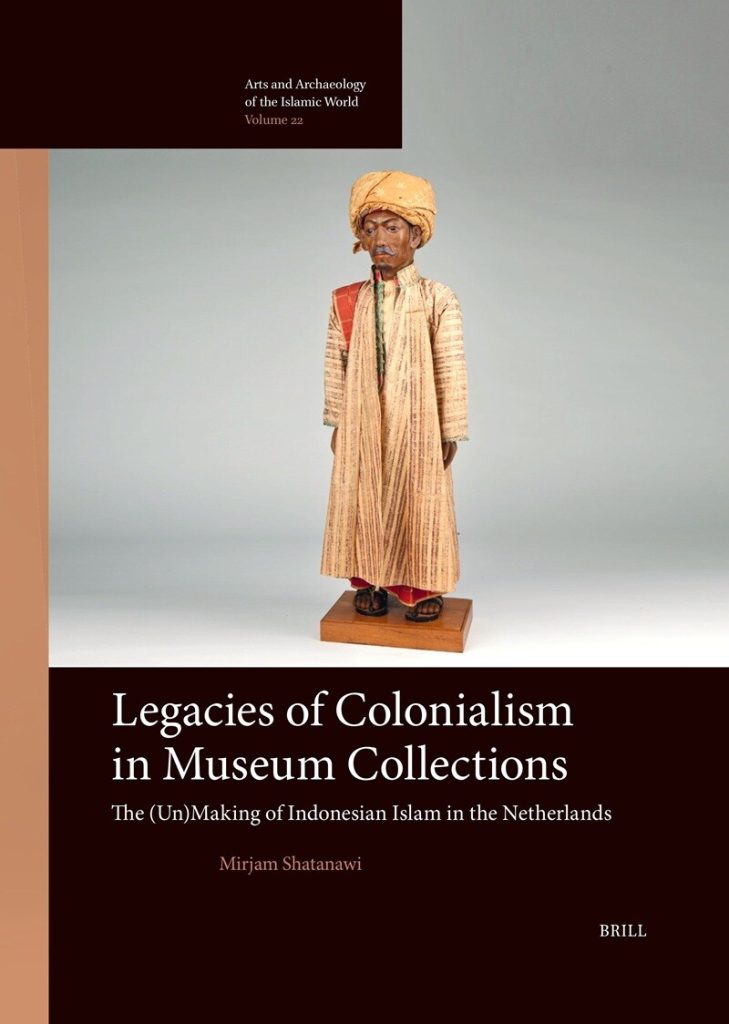
Date: Friday 11 April 2025
Tim: 1:30 – 4:30 PM CET
Location: Amstelkerk
Address: Amstelveld 10, 1017 JD Amsterdam
Organisation: Colonial Collections Consortium, DutchCulture
Language: Dutch
On Friday 11 April 2025, the Colonial Collections Consortium is organising a public event at the Amstelkerk in Amsterdam around the working visit of the National Museum Commission Suriname to the Netherlands. During this event, you will meet the members of the National Museum Committee Suriname and they will share their findings from the working visit. There will also be a panel discussion with the delegation members, in which attendees can ask questions.
From 7 to 11 April, the National Museum Commission Suriname, chaired by Roseline Daan, will pay a working visit to the Netherlands. This working visit is facilitated by the Consortium Colonial Collections and organised by the Cultural Heritage Agency of the Netherlands in cooperation with DutchCulture. During these five days, the Museum Committee will gain inspiration for their work in Suriname and strengthen relations with Dutch partners.
Participation is free, but we ask you to register.
We hope to see you at the Amstelkerk on 11 April!
The language of the event is Dutch
What is the programme?
- 1:30 Doors open
- 14:00 Opening and presentation on the National Museum Commission Suriname, and its working visit to the Netherlands
- 14:30 Panel discussion with delegation members and questions from attendees
- 15:30 Networking opportunity with drinks and snacks
- 16:30 End
Who are the delegation members?
The Commission consists of experts dedicated to the preservation and promotion of Suriname’s heritage. Members include:
- Roseline Daan – Chair, senior policy advisor at Ministry of Education, Science and Culture of Suriname
- Tanya Sitaram – Secretary, historian
- Rita Tjien Fooh – Member, heritage expert, director of National Archive of Suriname
- Ashvini Gangadin – Member, legal expert
- Daphne Yflaar – Representatie of Directorate of Culture, Head of State Collection Suriname
What does the National Museum Commission Suriname do?
The National Museum Commission Suriname was installed in September 2023 by Minister Henry Ori of Education, Science and Culture of Suriname, with the goal of strengthening the museum infrastructure in Suriname and promoting the handling of indigenous heritage, including the possible return of cultural objects. The Museum Commission plays an important role in the preservation of Suriname’s heritage and actively cooperates with various national and international partners.
Who is this event intended for?
The event is aimed at anyone with an interest in Surinamese heritage, colonial history and cooperation between Surinamese and Dutch museums. We welcome anthropologists, museologists, historians, students, museum staff, heritage professionals and the Surinamese diaspora involved or interested in cultural cooperation between the two countries, among others.
The language of the event is Dutch
Register
Date: Thursday 20 March 2025
Time: 17:00 – 18:30 CET
Location: Spui 25,
Address: Spui 25-27 1012 WX Amsterdam
Organization: NIOD Institute for War, Holocaust and Genocide Studies, as partner of the Colonial Collections Consortium
This event has already taken place. You can watch the livestream
How can academics and museum professionals research the provenance of a colonial museum collection? And can we trace possible ‘involuntary loss of possession’ or looted objects? During the colonial era, a variety of objects were taken to the Netherlands, often against the will of their original owners. For some years now, these collections and the possible return of colonial objects have been under scrutiny.
How do you investigate the provenance of museum collections acquired during the colonial era? Our guest speakers Mirjam Shatanawi (Reinwardt Academie and KITLV), Caroline Fernandes Caromano (LUCAS) and Paul Voogt (Missiemuseum Steyl) research such collections in the Netherlands. During this event, they will discuss their experiences as provenance researchers and some common challenges they encounter in their work. They talk about finding your way around extensive archival material spread across different institutions in the Netherlands and ways they trace ‘involuntary loss of possession’. They will also discuss the topic of researching colonial collections from different perspectives. What does it mean for a small museum with limited means to examine its collection history? And what is it like for someone from Brazil to research objects taken from their country and subsequently scattered across the European continent?
In order to assist researchers from the Netherlands and abroad in the first steps of their provenance research, the Expert Centre Restitution (ECR) of the NIOD Institute for War, Holocaust and Genocide Studies will present a series of digital research aids. The aids have been developed within the Colonial Collections Consortium, in conjunction with the Colonial Collections DataHub. Together with the experts and the audience, we will discuss what contribution such research aids can bring to the development of research into colonial collections in the Netherlands.
About the speakers

Wiebe Reints is a researcher at the NIOD Institute for War, Holocaust and Genocide Studies, working in a project within the Colonial Collections Consortium to create a series of research aids for conducting research into museum collections from a colonial context. He has a background in history and museum studies and graduated from the University of Amsterdam in 2023. He is interested in how the colonial past is reflected in museum collections and the restitution of cultural goods.

Mirjam Shatanawi is researcher and curator in the field of Islamic heritage and colonial collections. She obtained a PhD at the University of Amsterdam on the almost complete absence of Indonesia within the narrative of Islamic art and culture in Dutch museums. From 2001 until 2019, she worked as a curator at the Wereldmuseum. Nowadays, she teaches heritage theory at the Reinwardt Academie in Amsterdam and conducts research into the colonial manuscript collection of the Royal Netherlands Institute of Southeast Asian and Caribbean Studies (KITLV).

Paul Voogt studied anthropology (MA, University of Amsterdam) and business administration (MBA, Henley UK). He held management positions at Tropenmuseum Amsterdam, Naturalis Leiden and Utrecht University Museum and worked on redevelopment projects of museums in Kenya (National Museum) and Zanzibar (House of Wonders). He was appointed curator of Missiemuseum Steyl in 2022. Currently he engages in provenance research of a collection from Papua New Guinea, with a grant of the Dutch Research Council (NWO).

Caroline Fernandes Caromano is a Brazilian researcher with academic degrees in Social Sciences and Archaeology from the University of São Paulo and the National Museum of the Federal University of Rio de Janeiro. Living in the Netherlands since 2018, she has been a researcher at various renowned institutes. For the past 20 years, she has been conducting fieldwork and research in museum collections in collaboration with indigenous peoples of the Amazon, focusing on themes such as traditional knowledge, heritage and material culture.

Martijn Eickhoff is director of NIOD Institute for War, Holocaust and Genocide Studies and endowed professor of Archaeology and Heritage of War and Mass Violence at the University of Groningen. He researches the history, cultural dimensions and after-effects of large-scale violence and regime change in Europe and Asia in the nineteenth and twentieth centuries, with a particular emphasis on the spatial, material and transnational aspects. In 2020, he published the book The Politics of Heritage in Indonesia, co-written with Marieke Bloembergen.
Date: Friday, 24 January 2025
Time: 10:00 – 15:00 CET
Location: Radboud University, Thomas van Aquinostraat 4, 6525 GD Nijmegen
Organization: Globalise, Comatting Bias, Resisting Enslavement, Radboud Institute for Culture & History
How can digital infrastructures for colonial archives support a better understanding of historical and contemporary issues? This symposium brings together researchers and practitioners to discuss the challenges and opportunities of working with digitized colonial records.
Key topics
- Colonial archives and global significance
Reflect on the relevance of these archives for understanding shared histories and their broader implications. - Text recognition and digital access
Explore what comes after digitization and how to create meaningful tools for using complex historical records. - Biases in the archive
Address the inherent biases in colonial records and their impact on research and public access. - Reaching new audiences
Consider how digital infrastructures can engage diverse groups, including descendants of colonized communities.
Event overview
Many archives related to the Dutch colonial past have been digitised in recent years. From the archives of the VOC and WIC to early modern family, notarial, and business archives. These archives are closely intertwined with the colonial past itself. They contain information that sheds light on the (everyday) consequences and experiences of colonialism worldwide. These archives also provide access to information about non-European societies that is often not preserved in other ways. Colonial archives are often literally world heritage. More and more archives are therefore being made accessible through digitisation and text recognition. But as rich and diverse as these archives are, they are not neutral.
Challenges and questions
The symposium Colonial archives and meaningful digital infrastructure explores challenges, questions, and examples surrounding digital access and enrichment of shared resources related to the colonial past.
- How can digital infrastructure contribute to making unique information about the people and societies affected by or resisting colonialism findable and researchable?
- How can multiple perspectives and the many voices in these archives be made more visible?
- How can we ethically employ new techniques?
- And who are the true beneficiaries of advanced access and research infrastructure?
- Who should these initiatives serve, and how can global stakeholders beyond Dutch and professional users be reached (such as the descendants of colonized societies and of those societies whose pasts can be reconstructed using these archives)?
New approaches
Last spring, the advice Dealing with shared sources of the colonial past. Advice on repair and restitution in relation to colonial archives by the Dutch Council for Culture called attention to the role that a responsible handling of colonial archives can play in a better understanding of the impact of colonialism worldwide and its legacies to the present day. It also emphasised that colonial archives themselves are often tools that serviced colonial rule, and whose accessibility has often accentuated the flawed and one-sided perspectives that they bear.
New approaches are thus key to ensuring that new digital access and user infrastructures do not amplify colonial distortions or injustices, but instead contribute to dialogues in, and between, former colonizer and colonised societies. This leads to the question: how can digital infrastructures for colonial archives contribute to a better understanding of past and present in a complex world of present-day inequalities and memory cultures?
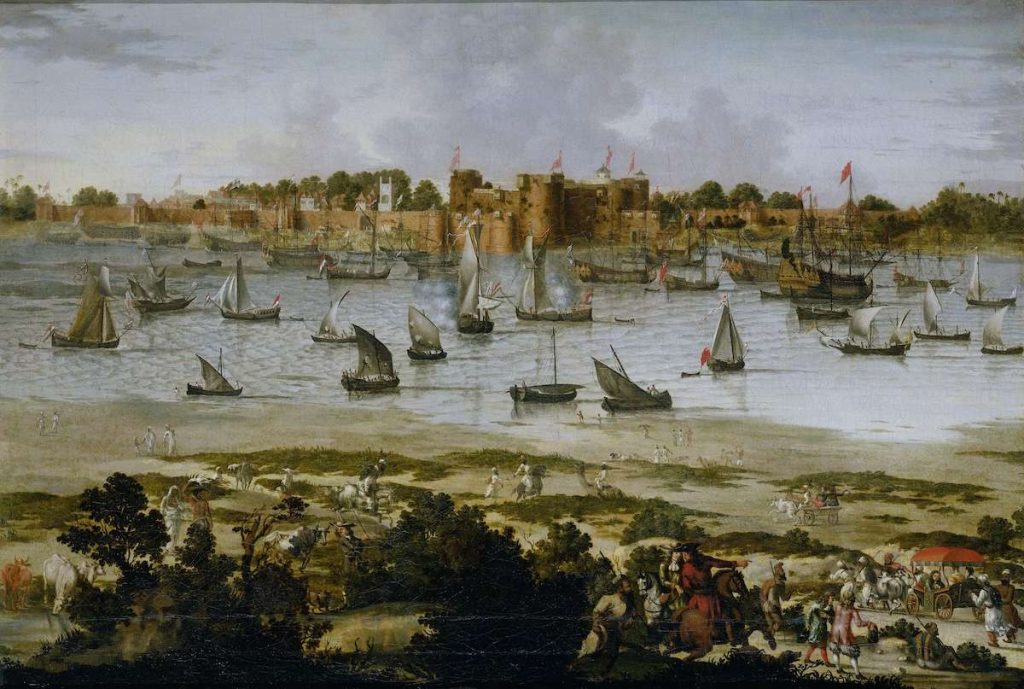
View of the Harbor of Sūrat (Gujarāt), anonymous, c. 1670 Rijkmuseum, SK-A-4778, CC0